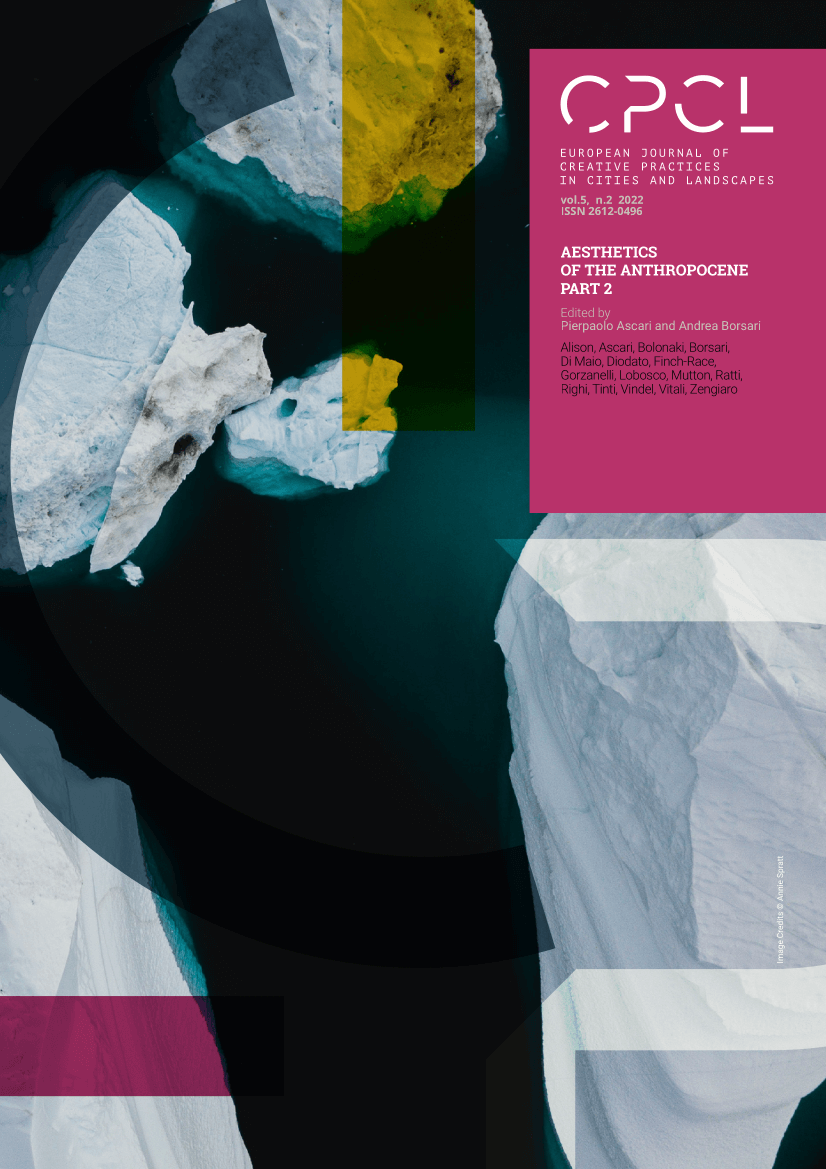The Currency of the Anthropocene. Dismantling the Theological Presupposition of Neoliberalism in Kim Stanley Robinson’s The Ministry for the Future
DOI:
https://doi.org/10.6092/issn.2612-0496/15217Keywords:
Anthropocene, Carbon Coin, Transcendence, Neoliberalism, AlterityAbstract
This essay analyzes Kim Stanley Robinson’s latest Sci-fi novel, The Ministry for the Future (2020), by focusing on key narrative elements developed in the text that offer solutions to our current climate crisis. Although fictional, these ideas are theoretically relevant because they challenge the current symbolic system of neoliberalism based on a sacrificial economy and a notion of transcendence that demands the infinite accumulation of surplus value. In particular, I examine the import of Robinson’s argument regarding the need for political representation of future generations through the creation of an ad hoc intragovernmental branch (the above-mentioned Ministry of the title of his novel) and a new understanding of value based on the concept of the Carbon Coin reward system.
References
Benjamin, Walter. “Capitalism as Religion,” Selected Writings. Cambridge: Belknap Press, 1996.
Csicsery-Ronay, Istvan. “Possible Mountains and Rivers: The Zen Realism of Kim Stanley Robinson’s Three Californias.” Configurations 20, no. 1-2 (2012): 149-185. https://doi.org/10.1353/con.2012.0003
Dolar, Mladen. “Avatars of Avarice” Jnanapravaha Mumbai Conference, 2019, https://youtu.be/b13eEBHgn9I.
———.“The Quality of Mercy Is Not Strained,” The Yearbook of Comparative Literature 60, 2014. https://doi.org/10.3138/ycl.60.x.9
Faitini, Tiziana. “The Redemption between Law and Theology,” Ius commune graeco-romanum Leuven: Peeters Publisher, 2019. https://doi.org/10.2307/j.ctv1q26r6s.6
Ferguson, Scott. Declarations of Dependence. Lincoln: Nebraska, 2018. https://doi.org/10.2307/j.ctvqhswb
Graeber, David. Debt. The First 5,000 Years. Brooklyn, NY: Melville House, 2012.
———. Toward an Anthropological Theory of Value. New York: Palgrave McMillan, 2001.
Haraway, Donna. Staying with the Trouble: Making Kin in the Chthulucene. Durham: Duke University Press, 2016. https://doi.org/10.2307/j.ctv11cw25q
Kelton, Stephanie. The Deficit Myth. New York: PublicAffairs, 2020.
Knoespel, Kenneth. “Reading and Revolution on the Horizon of Myth and History: Kim Stanley Robinson’s
Mars Trilogy.” Configurations 20, no. 1 (2012): 109-136. https://doi.org/10.1353/con.2012.0000
Morton, Timothy. Hyperobjects. Philosophy and Ecology After the End of the World. Minneapolis: University of Minneapolis Press, 2013.
Peter, Damian. Letters 1-30. Translated by Blum, Owen. Washington: The Catholic University of America Press, 1989.
Righi, Andrea. The Other Side of the Digital. The Sacrificial Economy of New Media. Minneapolis: University of Minnesota Press, 2021. https://doi.org/10.5749/j.ctv1h7zn4z
Robinson, Stanley, Kim. The Ministry for the Future. New York: Orbit, 2020.
Santner, Eric. “A Critique of Mana-Theism,” Narratives of Debt, 2019, https://youtu.be/j4fNKG0JNcY.
Suvin, Darko. “Science Fiction and the Novum.” In Defined by a Hollow, 67-92. Oxford: Peter Lang, 2010.
Todeschini, Giacomo. Come l’acqua e il sangue. Rome: Carocci, 2021.
———. “The Incivility of Judas: ‘Manifest’ Usury as a Metaphor for the ‘Infamy of Fact’ (Infamia Facti).” In Money, Morality, and Culture in Late Medieval and Early Modern Europe, 33-52: Routledge, 2016.
———. I Mercanti e Il Tempio. Bologna: Il Mulino, 2002.
Williams, Raymond. Preface to Film. London: Film Drama, 1954.
Wray, Randall. Introduction to Credit and State Theories of Money. Cheltenham, U.K.: Edward Elgar, 2004. https://doi.org/10.4337/9781843769842
———. Modern Monetary Theory: A Primer on Macroeconomics for Sovereign Monetary System. New York: Palgrave, 2015.
———. “Modern Money Theory: How I Came to MMT and What I Include in MMT,” October 1, 2018, Multiplier Effect, https://multiplier-effect.org/modern-money-theory-how-i-came-to-mmt-and-what-i-include-in-mmt/.
Downloads
Published
How to Cite
Issue
Section
License
Copyright (c) 2022 Andrea Righi

This work is licensed under a Creative Commons Attribution 4.0 International License.




